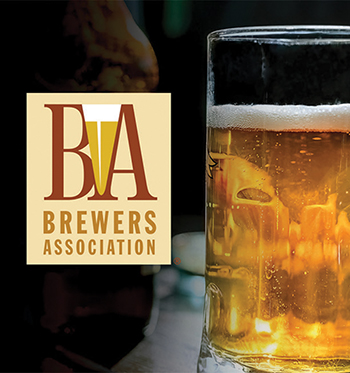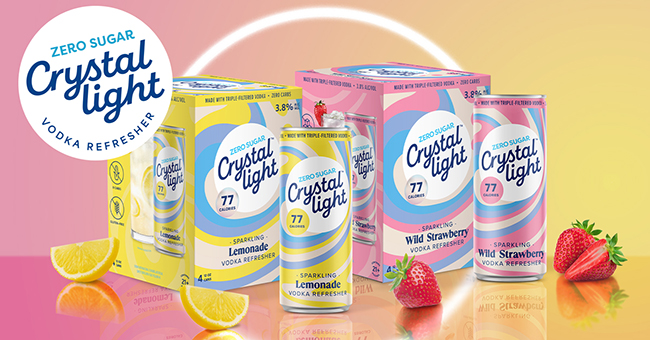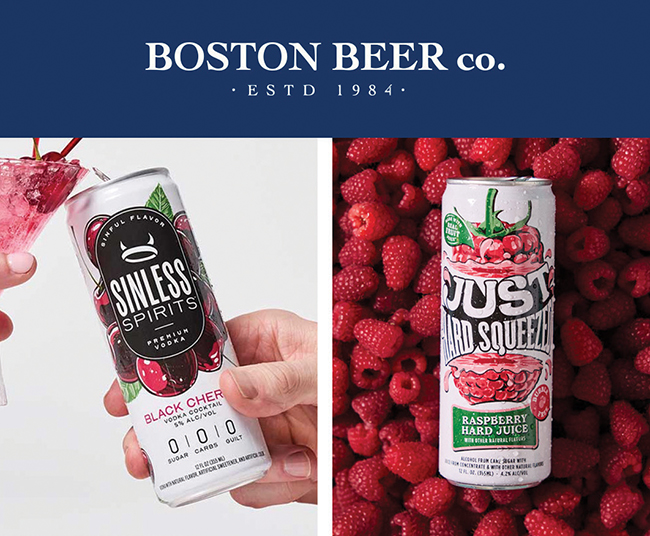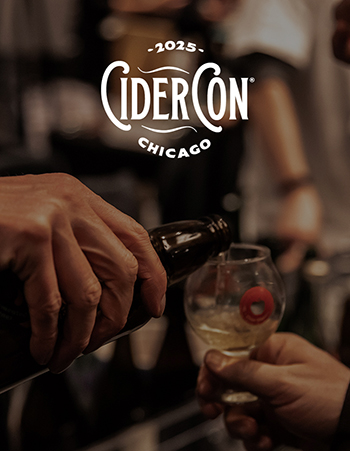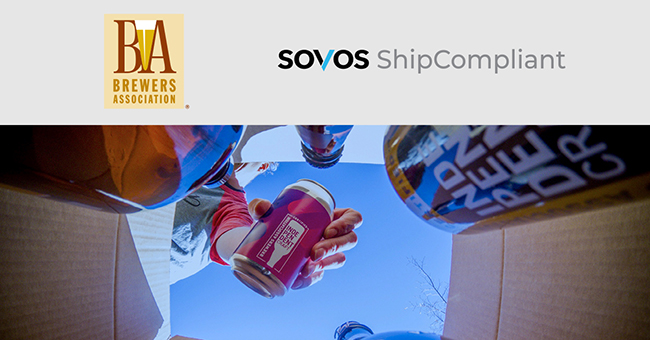Brewscape: The Latest Craft Beer Brand News
Brewers Association Revenue Declined -8.5% in 2024
As painful as 2024 was for craft brewers, the year seemed to be equally as challenging for the trade group that represents them. The Brewers Association’s (BA) total revenue declined 8.5%, to $20,972,476 in 2024, according to its annual report. Nearly every revenue driver declined year-over-year (YoY) – except for all other revenue, which increased 76.6% – but professional membership dues had the smallest decline at 2.3%, to $3,043,726.
Professional membership dues are the BA’s second largest source of revenue after events, which dwarf it by comparison. Event revenue declined 11.2%, to $12,327,560 last year, a sharp drop following a 2% decline in 2023.
The loss may be partially attributed to the cancellation of Homebrew Con as a standalone event in 2024. A signature event for the American Homebrewers Association (AHA), a BA subsidiary, the social and educational gathering of homebrewers was folded into the BA’s Great American Beer Festival (GABF).
The AHA announced plans to split from the BA in January, which will remove nearly $1 million in revenue from the BA’s coffers. AHA membership revenue declined 15.4%, to $975,231, in 2024. The organization reported $4,268,747 in both professional and homebrewer revenue combined last year, a decline from $4,354,518 in 2022.
With the sunsetting of Homebrew Con, the AHA’s upcoming split and the BA’s permanent cancellation of its food and beer pairing event SAVOR in 2022, the organization’s signature event roster has been cut in half. However, Homebrew Con and SAVOR were much smaller revenue drivers than GABF and Craft Brewers Conference (CBC) and its related BrewExpo America, which are slated for late April in Indianapolis. A BA spokesperson told Brewbound CBC attendance is expected to reach 10,000.
Advertising and sponsorship revenue, the BA’s third largest bucket, declined 14.6%, to $2,916,588, in 2024.
With expenses increasing 1.8% in 2024, to $23,138,414, the BA recorded an operational net loss of $2,165,938, according to the annual report. This marked a significant decline from 2023’s operational net of $190,028, which itself was a 77% drop from $840,532 in 2022.
On its 2024 balance sheet, the BA cited $5,259,384 in cash, a 36.4% decline from 2023. The organization’s reserve increased 10%, to $24,155,323.
Total assets declined 5.8%, to $36,698,156.
Barrel One and Kraft Heinz Partner on Crystal Light Vodka Refreshers
Crystal Light Vodka Refreshers are rolling out to 10 states.
A collaboration between Kraft Heinz and Harpoon maker Barrel One Collective, the 3.8% ABV vodka-based seltzer has 77 calories per 12 oz. serving, making it “the lowest-calorie ready-to-drink [RTD] cocktail on the market,” according to a release. The new product also boasts 0 carbs and 0 sugar.
Initial markets include Maine, New Hampshire, Vermont, Massachusetts, Rhode Island, Connecticut, New Jersey, Ohio, Illinois and Wisconsin. A wider roll out is planned for 2026.
Crystal Light Vodka Refreshers will be available in Wild Strawberry and Lemonade, each sold in 12 oz. can 4-packs with a suggested retail price of $9.99.
Crystal Light Vodka Refreshers are less carbonated than other hard seltzers, making the product “totally different than anything else,” Barrel One VP of marketing Rob Day told Brewbound.
“It is nitro-dosed, which creates a really low-level, smooth carbonation and less fill-up from bubbles,” he said.
Crystal Light’s demographic base leans toward millennial and Gen X women, and Crystal Light Vodka Refreshers is expected to “follow suit,” Day said.
“We strongly believe this will do great with the millennial crowd and even think it has some appeal with the Gen Z crowd, especially with the zero sugar, zero carb, low bubbles, low-calorie, low-alc attributes that actually taste great,” he added.
Asahi Appoints Paul Verdu to Lead US Operations, Invests $35M in Octopi Upgrades
Japanese brewing giant Asahi has enlisted Molson Coors vet Paul Verdu to serve as managing director of Asahi Beer USA and Octopi Brewing in the U.S. Verdu started in the role in mid-January.
Verdu has served as president of Lake Louie-maker Wisconsin Brewing Company for the last three years, helping transform the craft brewery’s business with the addition of co-packing that took its total volume beyond 90,000 barrels in 2024, after doubling in 2023.
In his new role, Verdu will be responsible for Asahi’s U.S. operations, including domestic production of Asahi Super Dry, Kozel and Twisted Shotz cocktail shooters, among other products, as well as the plant’s contract brewing operations.
Asahi acquired Waunakee, Wisconsin-based Octopi Brewing in January 2024 to produce its premium beer portfolio for the U.S. market, ready-to-drink offerings and contract brewed products.
“I’m thrilled to join Asahi at this pivotal moment, as we prepare for production of Asahi’s brands at Octopi, right alongside our fantastic co-packing clients’ products,” Verdu stated in the announcement. “We are also focused on creating a combined organization that marries our commercial sales and marketing excellence, technical expertise and Asahi’s global scale to enable our future growth.”
Bell’s EVP Carrie Yunker to Depart Company After 20+ Years
Bell’s Brewery executive vice president (EVP) Carrie Yunker exited the company in late March after more than two decades with the Comstock, Michigan-based brewery.
“While I will forever consider myself a Bell’s and New Belgium coworker at heart, I’ve decided to dedicate my time and attention to causes and community foundations that are close to my heart,” Yunker said in the announcement. “I feel a deep sense of fulfillment from the work accomplished at Bell’s and New Belgium and am excited for their future and continued success.”
Yunker’s last day was March 24, which was also this year’s Oberon Day, when Bell’s releases its popular summer seasonal wheat ale.
Afterwards, Yunker’s responsibilities “will be shared amongst the leadership team,” with no plans to fill her position “right away,” a New Belgium spokesperson shared with Brewbound. The New Belgium team will be “working closely” with Yunker to “identify business priorities for a smooth transition.”
“Her passion for the beer industry, her leadership, and her commitment to the community have left a lasting impact,” New Belgium CEO Shaun Belongie added in the release. “It’s been a privilege having the chance to work with her, and I have no doubt that the organizations she’ll be working with in the future will be made better because of it.”
Yunker joined Bell’s in 2003 as a part-time receptionist while a student at Western Michigan University, and was employee No. 50 for the brewery at the time. She worked her way through the ranks, eventually becoming VP of human resources – a 20-year journey she shared during her 2022 Brewbound Live keynote speech.
Yunker was promoted to EVP – a newly created role at the time – in January 2021, as part of Bell’s founder and president Larry Bell’s transition away from day-to-day operations.
Boston Beer Tests Just Hard Squeezed FMBs and Sinless Vodka RTDs; Rebrands Wicked Haze
Boston Beer Company is set to roll out a pair of new beyond beer offerings this spring, as the company reshuffles its portfolio.
Sinless Spirits will launch in April in four 5% ABV vodka-based cocktail flavors – Cranberry, Black Cherry, Pineapple and Peach – in Massachusetts; Fresno, California; and Omaha, Nebraska.
The brand’s website describes it as: “An indulgent cocktail crafted with big, bold flavor and made with premium vodka – all with zero sugar, zero carbs and only 100 calories.”
Boston Beer is also rolling out Just Hard Squeezed in four test markets: Charleston and Myrtle Beach, South Carolina; Austin, Texas; and Rhode Island.
Just Hard Squeezed is a hard juice brand made with real fruit juice and alcohol from cane sugar. The flavored malt beverage (FMB) will come in four 4.2% ABV, bubble-free flavors – Raspberry, Pineapple, Mango and Peach.
The addition of those brands come as Boston Beer has discontinued Slingers Signature Cocktails (8% ABV), which launched in spring 2023 and was expanded in 2024, and General Admission, an NA offering made from a blend of 40% NA beer and 60% fruit water, which hit stores in February 2024. Both were discontinued in late 2024, according to a 10K filing.
Change is also coming to Samuel Adams’ beer portfolio. Boston Beer is now in the process of rebranding Samuel Adams Wicked Hazy Juicy New England IPA as Samuel Adams New England Juicy IPA.
The recipe for Samuel Adams New England Juicy IPA will be changed to increase the ABV from 6.8% to 7% and give it a “hop aroma of citrus, red, tropical, and stone fruits,” while oats and wheat create “a medium body and smooth mouthfeel.” Samuel Adams New England Juicy IPA will be available in 12 oz. can 6- and 12-packs; 16 oz. can 4-packs; 19.2 oz. single-serve cans; and draft.
Hard Cider in a Chapter Primed for Growth, But Needs to ‘Claim the Throne’
The 15th annual CiderCon took place in Chicago in February, drawing about 850 attendees and cider industry members to the Windy City for the American Cider Association’s (ACA) annual industry conference and trade show.
The event – with the theme “Cider’s Balanced Future: People, Planet and Profit” – had an elevated air of excitement this year, as nearly half of attendees – who traveled from 40 states and 13 countries – were first-timers, including new ACA CEO Monica Cohen, who took office February 1.
Cohen – a former executive for Dairy Farmers of America, who succeeds Michelle McGrath – shared her excitement for the hard cider segment and her role in it during a speech at the event’s opening session.
She shared some of her goals, including:
Making sure members are “able to keep your lights on and grow your business;”
To be present at Capitol Hill and fight “for things that make it easier for you to do business,” including eliminating laws that “don’t make sense,” such as “bubble tax;”
And “tell the stories of cideries” to fellow bev-alc industry members and consumers.
“My journey to the stage today has taught me the possibilities of cider,” Cohen said. “It’s vast, it’s diverse – I had no idea. Now I know, and as the leader of the ACA, I’m going to make sure everybody else knows too.”
This is not the first time the hard cider industry has touted that “now is the time” for the segment to take off and gain a more substantial share of bev-alc.
During a data presentation, NBWA chief economist and VP of analytics Lester Jones placed the past nearly 15 years of hard cider into four chapters:
Chapter 1 (2012-2015) was a period of rapid expansion, driven mainly by a surge in nationally distributed brands such as Boston Beer Company’s Angry Orchard, Heineken’s Strongbow and Anheuser-Busch InBev’s Johnny Appleseed;
Chapter 2 (2016-2019) had “ups and downs” similar to the craft beer industry, with macro- and micro-brands shuffling around share of the segment;
Chapter 3 (2020-2023) a.k.a. the COVID-19 pandemic added a hurdle for the hard cider segment, as many brands did not participate in the major shift to the off-premise that other beer segments did, particularly as hard cider is more reliant on own-premise sales than other segments, according to Jones.
The segment is now in Chapter 4 as of 2024, with hard cider recording slight growth in on- and off-premise channels. That growth is expected to continue, with the segment speaking to consumer taste preferences, as well as demographic changes, Jones said.
Monster Beverage Takes $130.7M in Impairment on Alcohol Brands in Q4
Monster Beverage Company reported a $130.7 million impairment charge on its alcohol brands in Q4 2024, bringing its total write down on its bev-alc business over the last year to more than $138.7 million, the energy drink giant reported in its Q4 and full-year 2024 earnings report.
“We incurred additional impairments within our alcohol brands segment in the quarter due to financial performance, which is being addressed,” Rodney C. Sacks, chairman and co-CEO, said in the release.
Company leaders had warned earlier this year that additional write downs would be forthcoming on its bev-alc division, created via the $330 million cash acquisition of the former CANarchy Craft Brewery Collective (Oskar Blues, Cigar City and Deep Ellum, Perrin, Wasatch and Squatters) in January 2022 and the additions of flavored malt beverages (FMBs) the Beast and Nasty Beast.
Monster recorded a $39.9 million write-down on its alcohol brands In Q4 2023.
Reasons for the latest impairment charge included “operating and financial performance not meeting projections” and a “decrease in projected ongoing operating and financial performance of the reporting unit.”
In addition to the impairment charge, Monster reported $4.1 million in excess inventory of its alcohol brands during the quarter, and $14.73 million for the full year, which was a drag on gross profit.
For Q4 2024, Monster reported a 0.8% decline in net sales for its bev-alc portfolio, to $34.9 million. A year prior, the company reported bev-alc net sales of $35.2 million in Q4.
For full-year 2024, Monster’s alcohol sales topped $172.4 million, down from around $184.9 million in 2023.
During Thursday afternoon’s call with investors, Sacks noted previous changes to the alcohol division’s leadership, including appointing Ray LaRue as president of Monster Brewing and restructuring the senior management team, including sales, marketing, strategy and operations.
“[Monster] will be implementing further adjustments in the coming months with the intent to optimize our personnel and facilities to support the current demands of our portfolio and innovation pipeline,” he said.
Monster previously shuttered the Deep Ellum and Oskar Blues production breweries in Texas, and transitioned the Cigar City brewery in Tampa to a research-and-development facility.
Hurricane Helene flooded Monster Brewing’s Brevard, North Carolina-based facility, shuttering the location for a week, Sacks said. The facility was partially operational until becoming fully operational in mid-November.
Sovos/Brewers Association Survey: 83% of Craft Drinkers Want Expanded Direct-to-Consumer Shipping
A majority of U.S. consumers support expanding direct-to-consumer (DTC) shipping of beer, according to the fifth annual Direct-to-Consumer Beer Shipping Report, a Harris Poll survey commissioned by Sovos ShipCompliant and the Brewers Association (BA).
In the latest incarnation of the survey – conducted January 7-9, with 2,021 U.S. adult respondents – 83% of regular craft drinkers (those who drink craft beer at least once a month) and 64% of legal-drinking-age (LDA) U.S. consumers said state laws should be expanded to allow DTC shipments of beer to consumers beyond the nearly dozen states where it is now permissible.
Those numbers mark a slight decline from the 2024 survey, which found 86% of craft drinkers and 68% of LDA consumers favored DTC expansion.
Alex Koral, Sovos ShipCompliant regulatory general counsel, said in a press release that craft breweries and a majority of adult U.S. consumers continue to seek parity with the wine industry, which is permitted to ship products to 47 states and Washington, D.C.
“The takeaways remain clear: There is significant opportunity for a larger, well-regulated direct-to-consumer shipping channel that complements three-tier distribution, helps craft brewers and their business partners, and benefits consumers alike,” he said.
Adding DTC beer shipping in additional states could open a revenue stream for craft brewers facing numerous headwinds, among them slowing demand, shrinking shelf space at retail, waning distributor purchasing and potential increases in aluminum tariffs.
BA CEO Bart Watson added that DTC shipping for craft beer producers “is one opportunity to bridge that gap between consumer preferences and the realities of the distributed market.”
“The fact is, with nearly 10,000 craft brewers in the United States, and more consolidation of the wholesale and retail tiers, craft brewers should have the same opportunities as other producers to explore other market access opportunities,” he said. “For many small and independent brewers, DTC shipping would be an opportunity – a new way to create and maintain relationships with customers, in much the same way that DTC wine shipping created opportunity for small wineries decades ago.”
The survey backed up those sentiments, with 76% of regular craft drinkers responding that they would increase their purchases of craft beer if DTC shipping was available to them.


Receive your free magazine!
Join thousands of other food and beverage professionals who utilize BevNET Magazine to stay up-to-date on current trends and news within the food and beverage world.
Receive your free copy of the magazine 6x per year in digital or print and utilize insights on consumer behavior, brand growth, category volume, and trend forecasting.
Subscribe